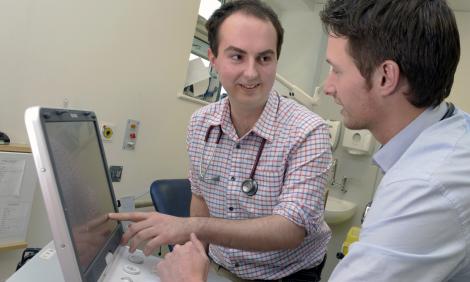Your UCAS application
This page gives you some advice on completing your UCAS application for medical school, including writing your personal statement.
You apply to medical school online through UCAS between mid September and 15 October in the autumn before the course starts. This is earlier than the deadline for most other courses.

Deferring entry
If you want to take a year off, check that your chosen medical schools accept deferred entry. If not, you can apply during your gap year, but you would need to be available for interviews. If you accept a deferred place, you can’t re-apply through UCAS the next year unless you withdraw your original application.
-
Give yourself plenty of time to complete the application and to allow your referee to write your reference.
UCAS Apply guides you through the application. You will have to list your personal details, all your qualifications (academic and non-academic eg music exams), and employment history, including any part-time jobs.
If you have significant work experience and don’t have space to include all the details, try to include these in your personal statement. Alternatively, you could send your CV to the medical schools after your application has been acknowledge. Don’t send your CV to UCAS.
-
This is an important part of your application, so take your time over it.
- it’s a good idea to write a draft and then revisit it a few times
- don’t lie, exaggerate or plagiarise because you’ll be caught out (for example at interview stage). Honesty is considered essential for medicine
- double-check your spelling, punctuation and grammar
- get someone else to check your application through
- be prepared to answer questions about anything you write in your statement at interview
- tailor your statement to medicine even if you are applying for another subject
With a limited word count, in your personal statement you need to explain:
- what has inspired you to study medicine
- why you think you’re suited to a career in medicine
- your understanding of what studying medicine involves
- the range of experience you’ve gained and what you have learned
- the various ways you’ve developed transferable skills
- any courses, taster days or talks on medicine that you’ve attended
- any areas of your studies that particularly interest you and why
- your social, sport and leisure interests
- if you’re taking a year out, your reasons and plans
- any specific career plans. If you mention these, make sure you have researched them thoroughly. Remember that specialty training is a long way off so you won’t be expected to have firm ideas
The UCAS website has lots of useful advice on completing your personal statement.
You might also find the Studying Healthcare website helpful.
-
Your reference is another important part of your UCAS application. It’s usually written by your head teacher, head of sixth form or someone in a similar position. They should have been given information on you from your teachers and personal tutor. If you’re in paid or unpaid employment, you could ask your manager, human resources manager or another senior member of staff. If you’re at university, you could ask your course or personal tutor.
The referee should be able to:
- verify what you have written in your application
- comment on your academic achievement and potential, the skills you’ve developed, and your motivation and suitability for medicine
- explain any health or personal circumstances that may affect your application, such as your mock results not being as good as predicted
Make sure that your referee has all the information they need about you and that they are aware of your commitment to medicine. You could politely ask to see the reference so that you can provide further information or correct any errors.
-
UCAS will confirm receipt of your application and the medical schools you have chosen will get copies. You can follow the progress of your application using UCAS Track. Track will normally tell you whether or not you’ve been selected for interview.
You are only able to accept two offers – one that you want to accept firmly and one ‘insurance’ place.
See applying to university through UCAS for more information on applying and what happens if you have no offers.




